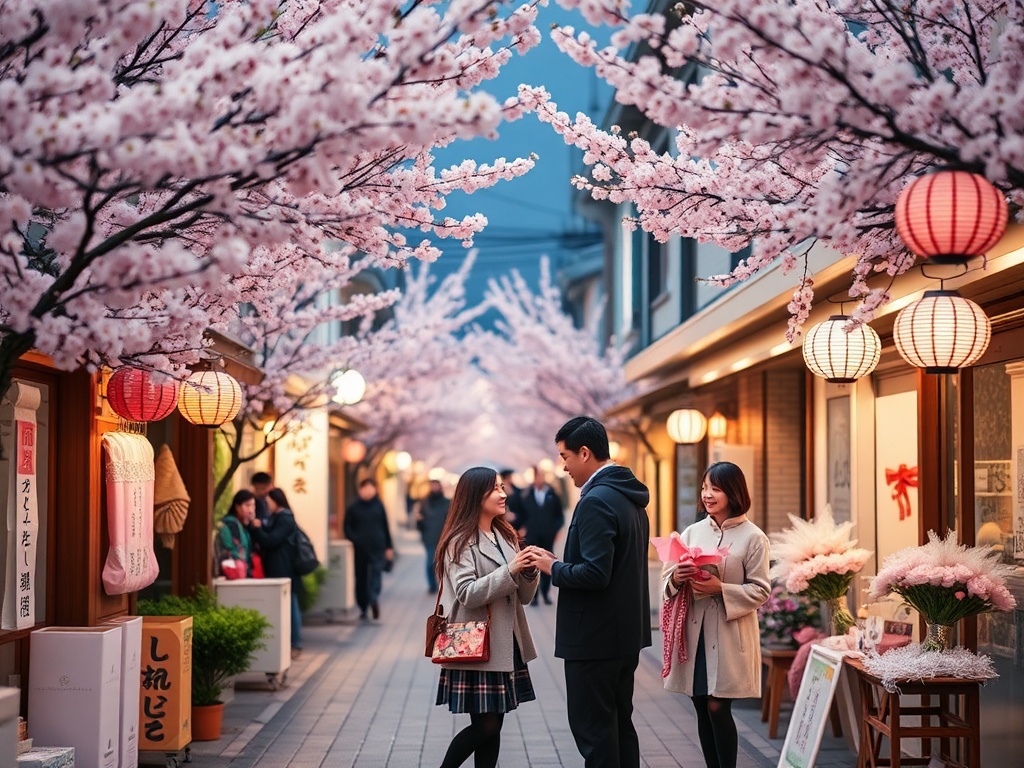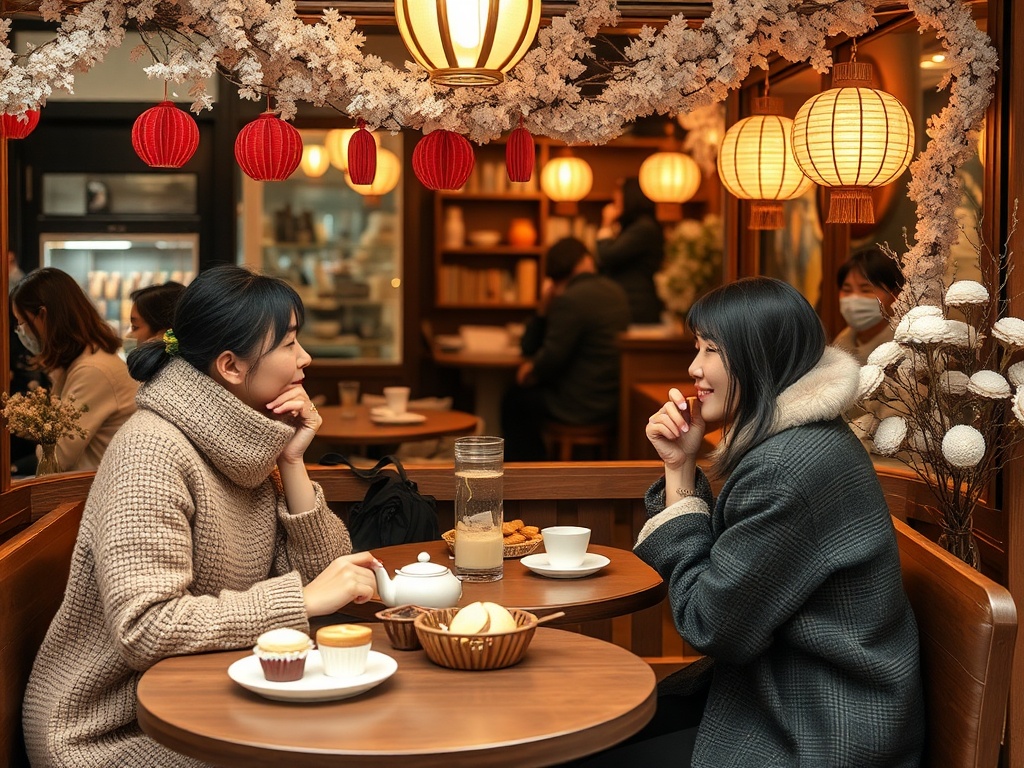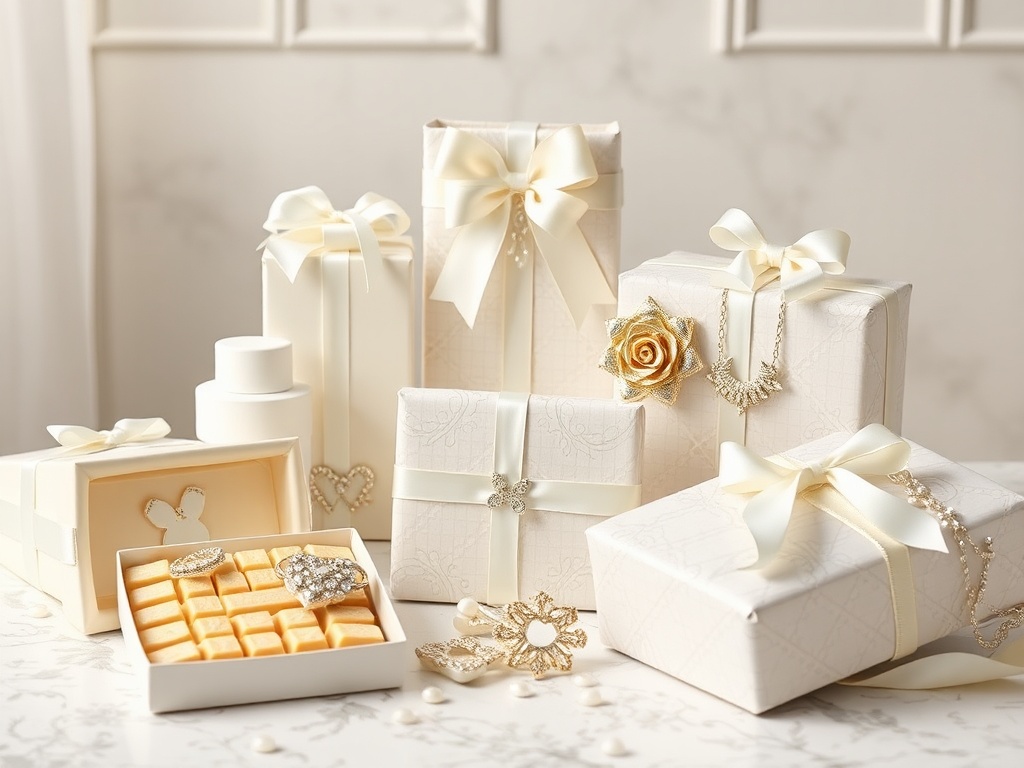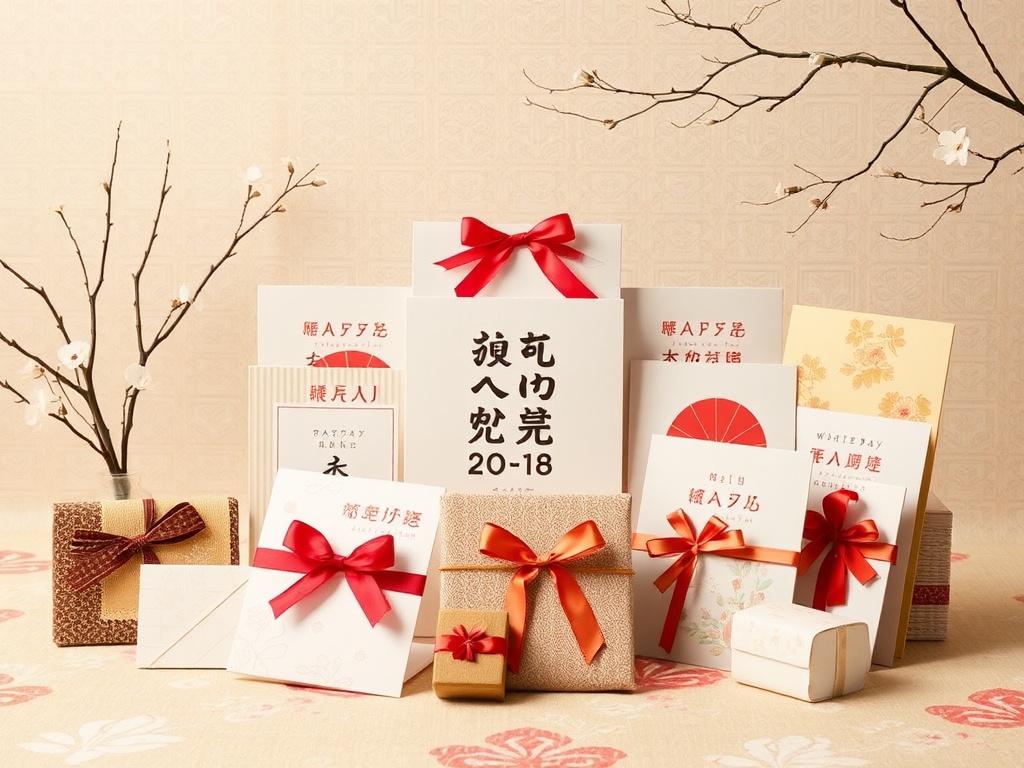What is White Day in Japan?
Win a Free Trip to Japan!
Experience cherry blossoms and ancient temples
White Day, celebrated on March 14th, is a delightful holiday in Japan where men receive gifts from women as a sweet return for the chocolates and goodies they received on Valentine’s Day. It’s not just a day of giving; it’s a day of expressing feelings, sentiments, and the nuances of relationships through the medium of confectionery!
In Japan, there’s a charming custom where if you receive a gift, you are expected to give a gift in return. This unwritten rule has been lovingly passed down through generations, making it an essential part of Japanese culture. So, on White Day, women typically present men with gifts, often in the form of white-colored sweets or chocolates. The choice of gift can signify different messages about the relationship, which adds a layer of excitement and anticipation to the occasion!
What’s the Origin of White Day?
White Day’s roots can be traced back to Japan, although you might find some celebrations in South Korea, Taiwan, and China, albeit to a lesser extent. Interestingly, most Western countries remain blissfully unaware of this unique holiday! It was officially named White Day in Japan in 1978, but before that, it was whimsically known as Cookie Day, Marshmallow Day, Poppy Day, and Flower Day.
Three Theories on the Origin of White Day
The precise origin of White Day is shrouded in mystery, but there are three main theories that have tickled the fancies of historians and romantics alike:
Theory One – Zen-Amekyo Theory
In the 1960s, confectionery companies began to market sweets as gifts specifically for Valentine’s Day. Afterward, these companies designated an official date for gift reciprocation. In 1980, the National Candy Confectionery Cooperative Association, known as Zen-Amekyo in Japan, officially marked March 14 as the day to give back. Fast forward to 1982, and voilà! White Day was established through events and campaigns, with department stores and advertising companies hopping on the sweet bandwagon!
Theory Two – the Manseido Ishimura Theory
Ishimura Manseido, a beloved confectionery store in Fukuoka, is famous for its marshmallow treat called Tsurunoko. Legend has it that they initiated a day for giving marshmallows in return for Valentine’s Day gifts. This theory suggests that the Marshmallow Day campaign began on March 14, 1978, and later transformed into White Day in the 1980s. Talk about a sweet transformation!
Theory Three – Fujiya and Eiwa Theory
Another delightful theory involves Fujiya, a cake and confectionery store from Yokohama, who started promoting Valentine’s Day return gifts under the catchy name of Return Valentine. In 1973, they teamed up with candy maker Eiwa to launch the Merci Valentine Campaign. This campaign encouraged the giving of candies and marshmallows as return gifts for Valentine’s Day. It seems clear that the motivation for establishing White Day was to boost candy sales, so perhaps all three theories hold some merit!
What’s the Meaning Behind these Sweets?
White Day is not just about exchanging sweets; it’s a nuanced way for women to express their gratitude and feelings towards the men who gifted them on Valentine’s Day. The type of sweet given carries specific meanings, and in the world of Japanese culture, subtlety is key. Let’s break down what each type of sweet signifies!
- Candy: Giving candy says I like you! This sturdy, long-lasting treat symbolizes a strong affection that is expected to endure over time.
- Cookies: A cookie signifies let’s just be friends. Being easy to break and available in countless varieties reflects the transient nature of friendships.
- Marshmallows: Beware of gifting marshmallows! They convey I do not like you in that way. Their quick meltability symbolizes fleeting relationships that are easily forgotten.
- Macarons: Presenting macarons means You are special. These delicate, labor-intensive treats indicate that the relationship holds a unique significance.
- Chocolate: Chocolate is the quintessential gift for White Day. It suggests that the relationship is friendly but without deeper implications, making it a safe option!
While these associations might not be written in stone, they certainly add a fun twist to the gifting process. Many people, myself included, have received various types of sweets from friends and coworkers, and often, the implications are more playful than serious!
Want a Unique Japan Trip?
If the charm of White Day and the intricacies of Japanese culture have captured your heart, why not dive deeper? Discover Japan planning secrets with our best-selling Itinerary Planning Course or inquire about our exclusive Small Group Tours. Experience the magic of Japan firsthand!




